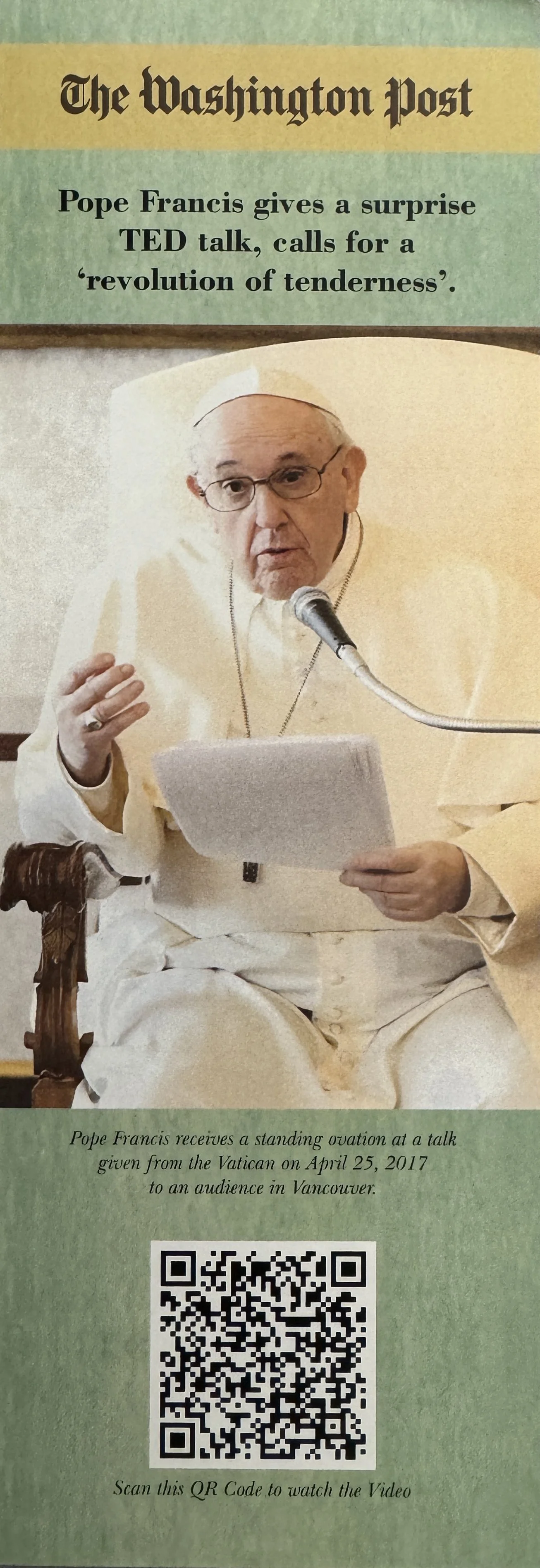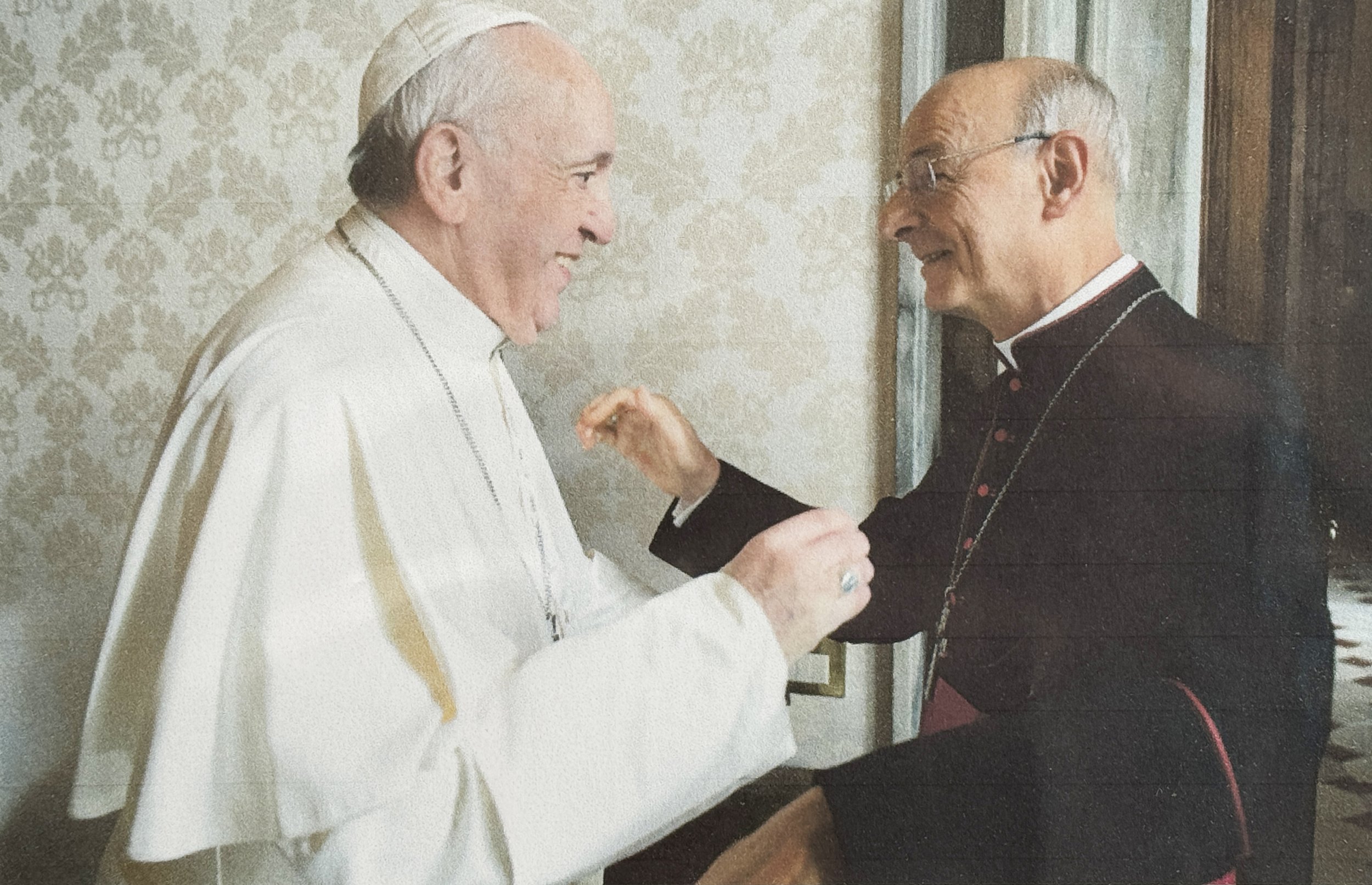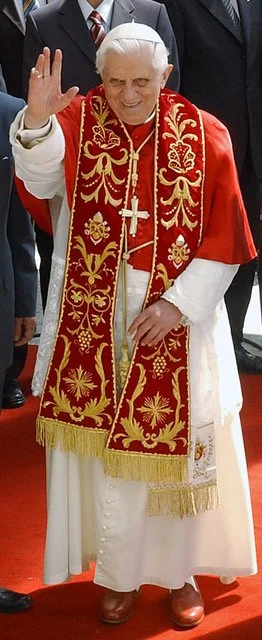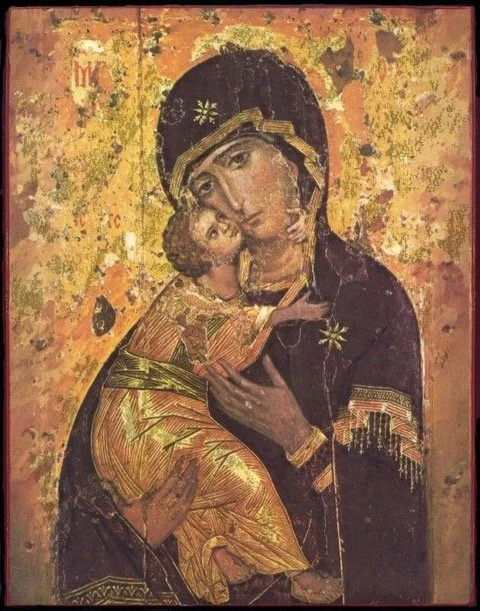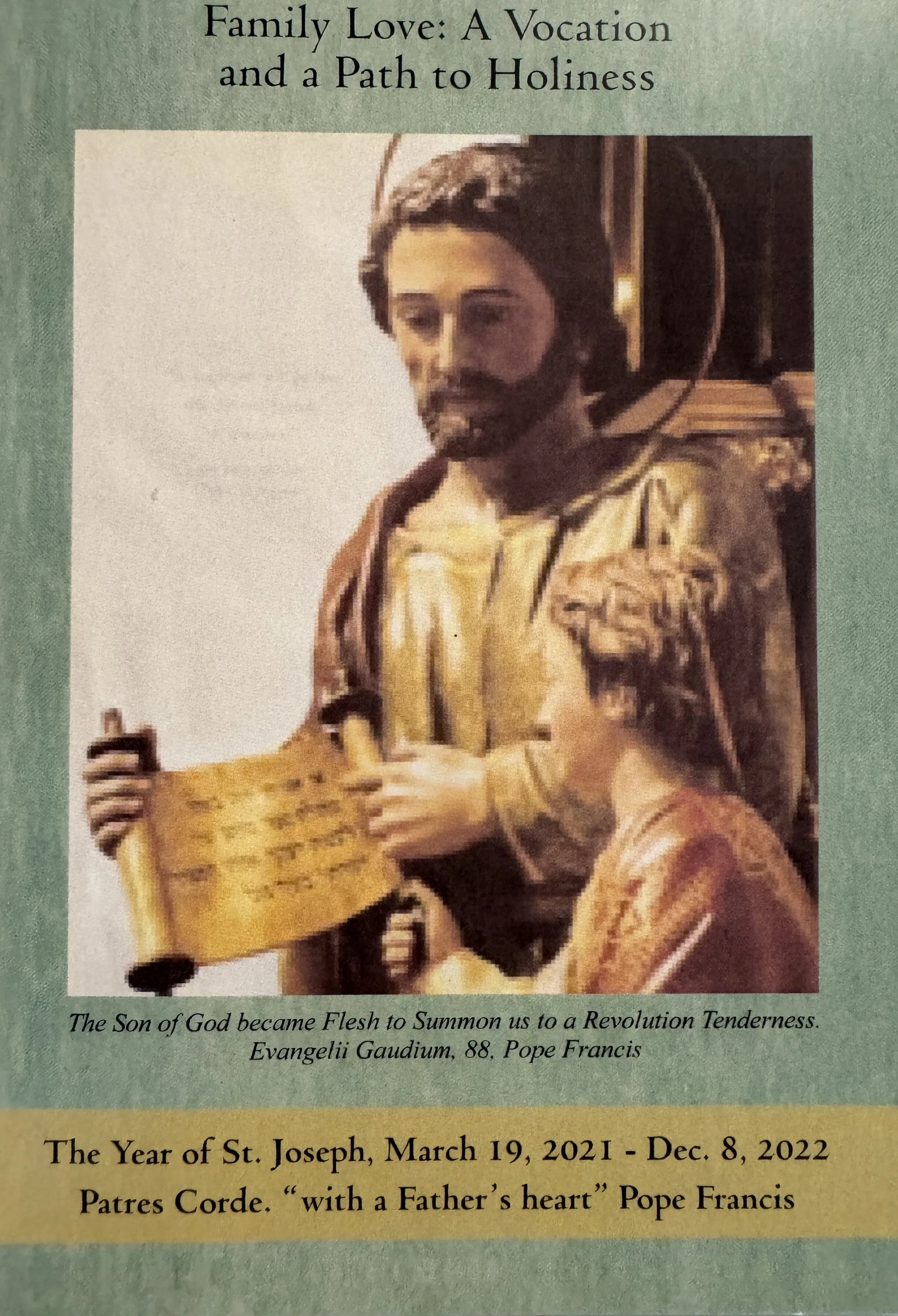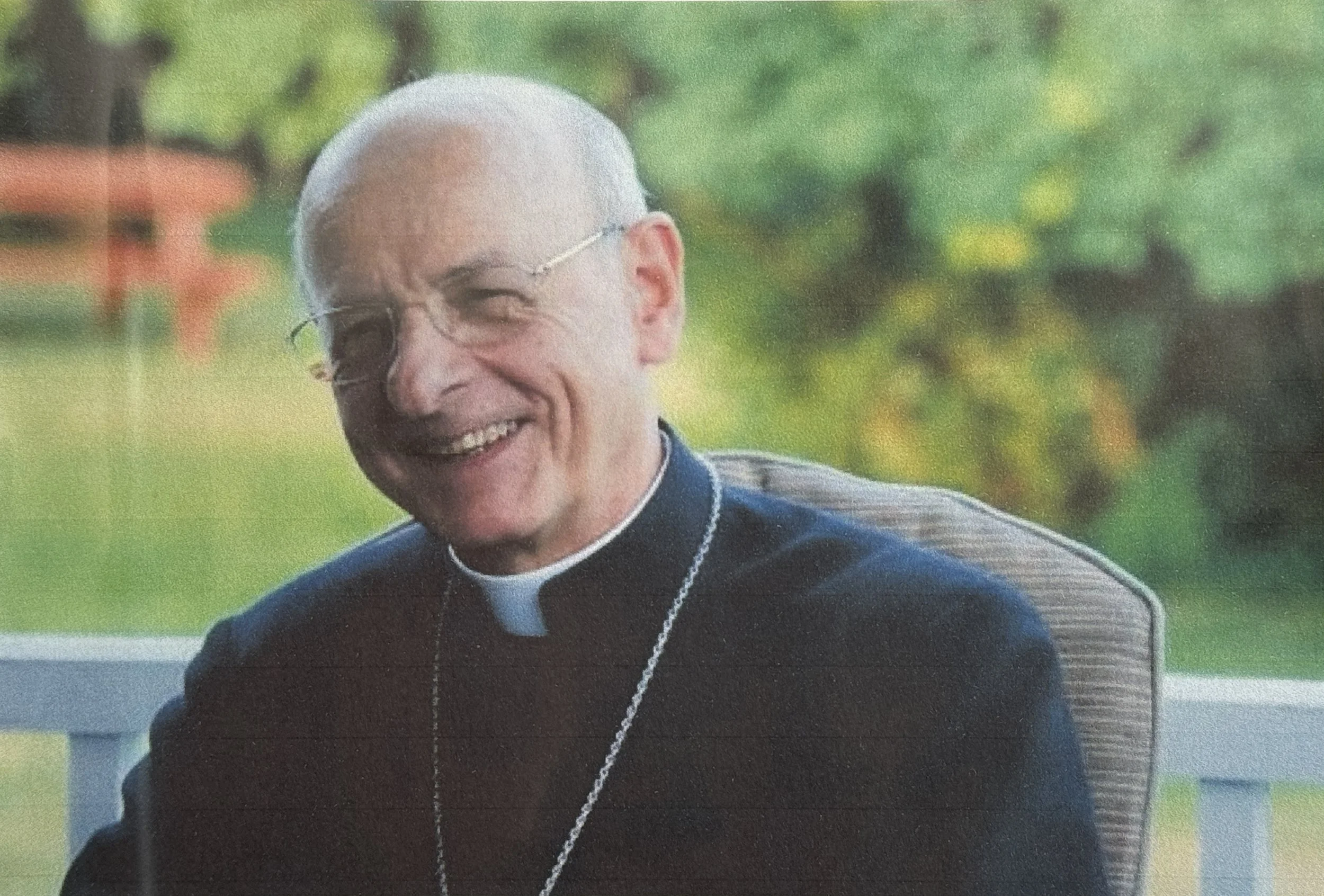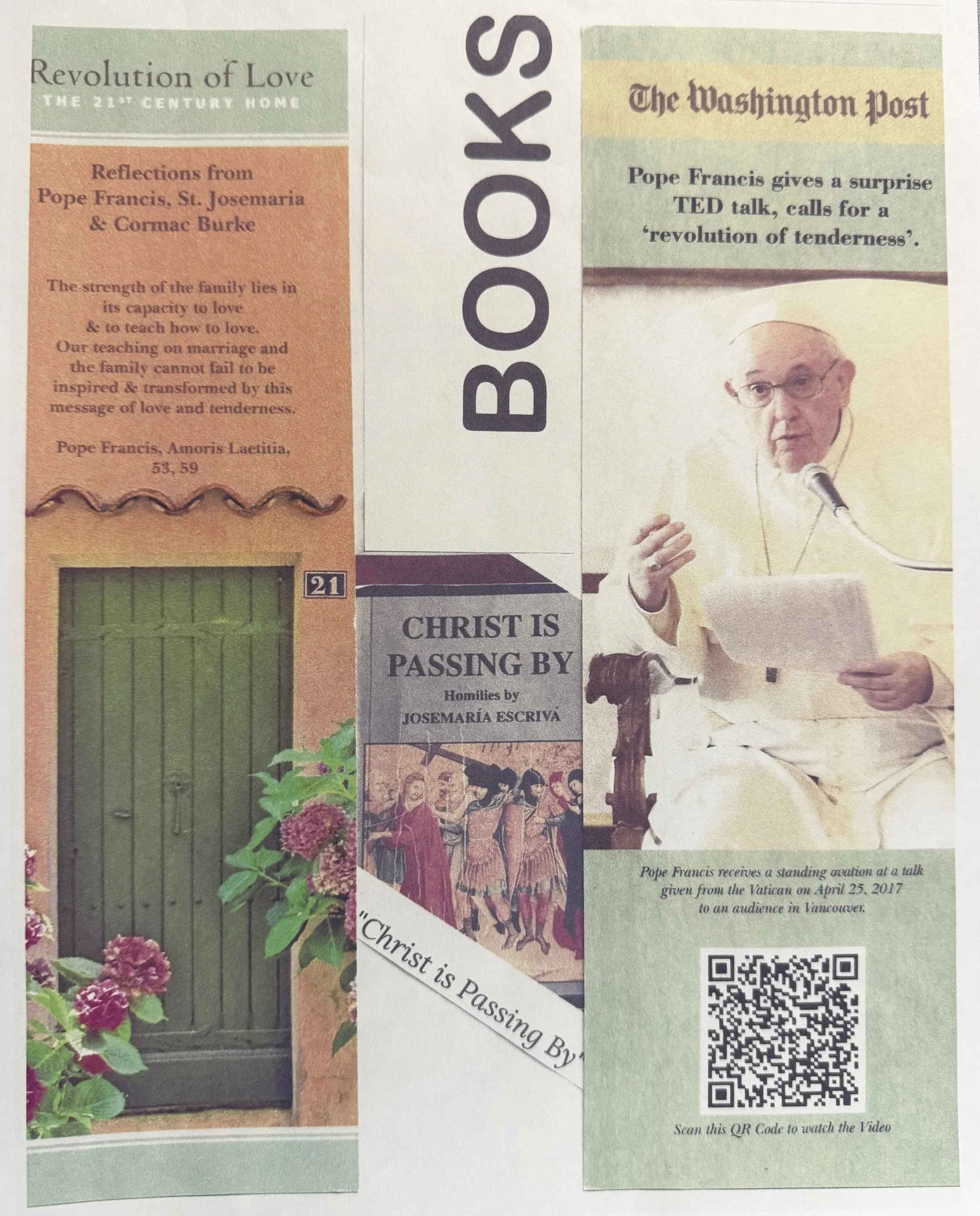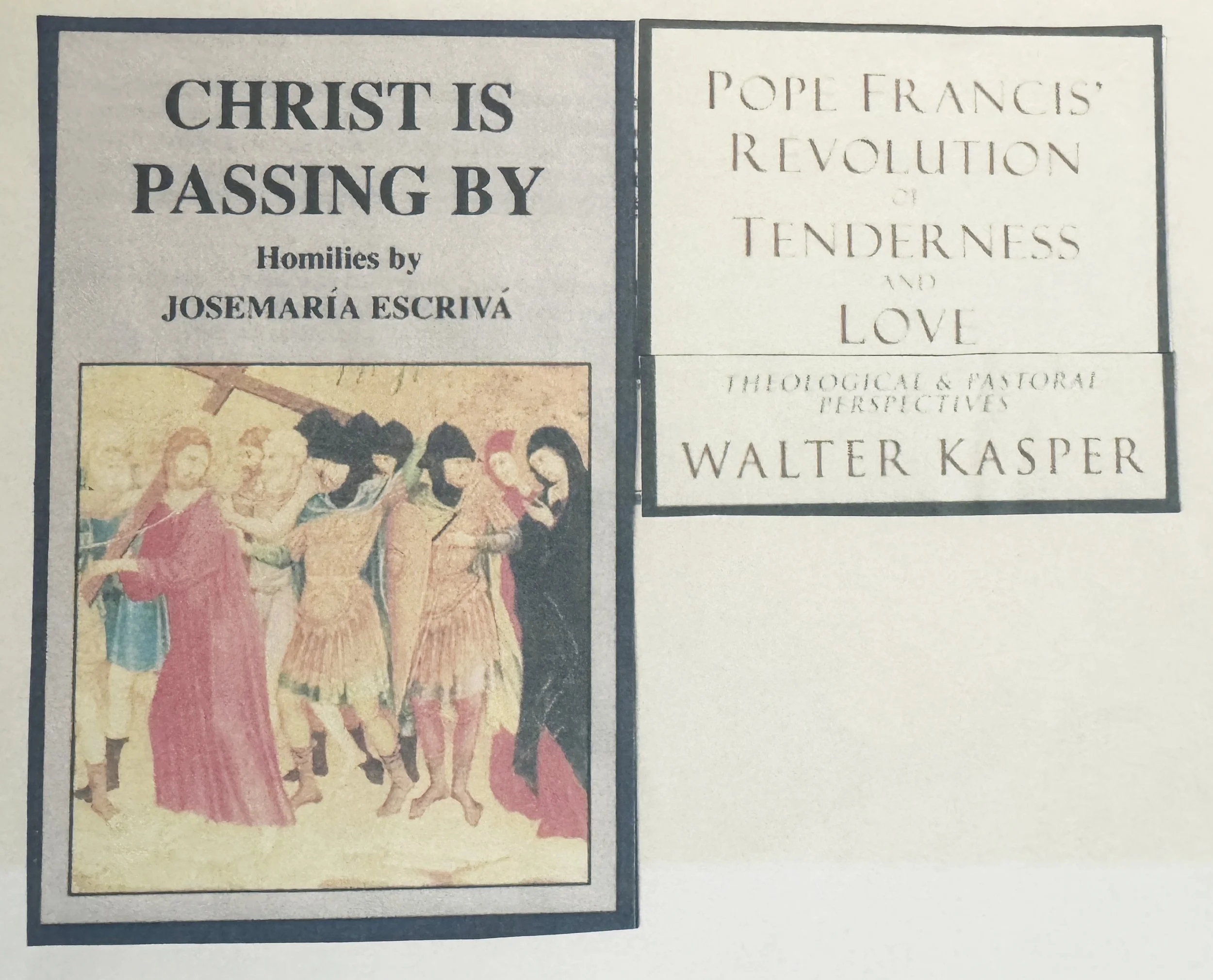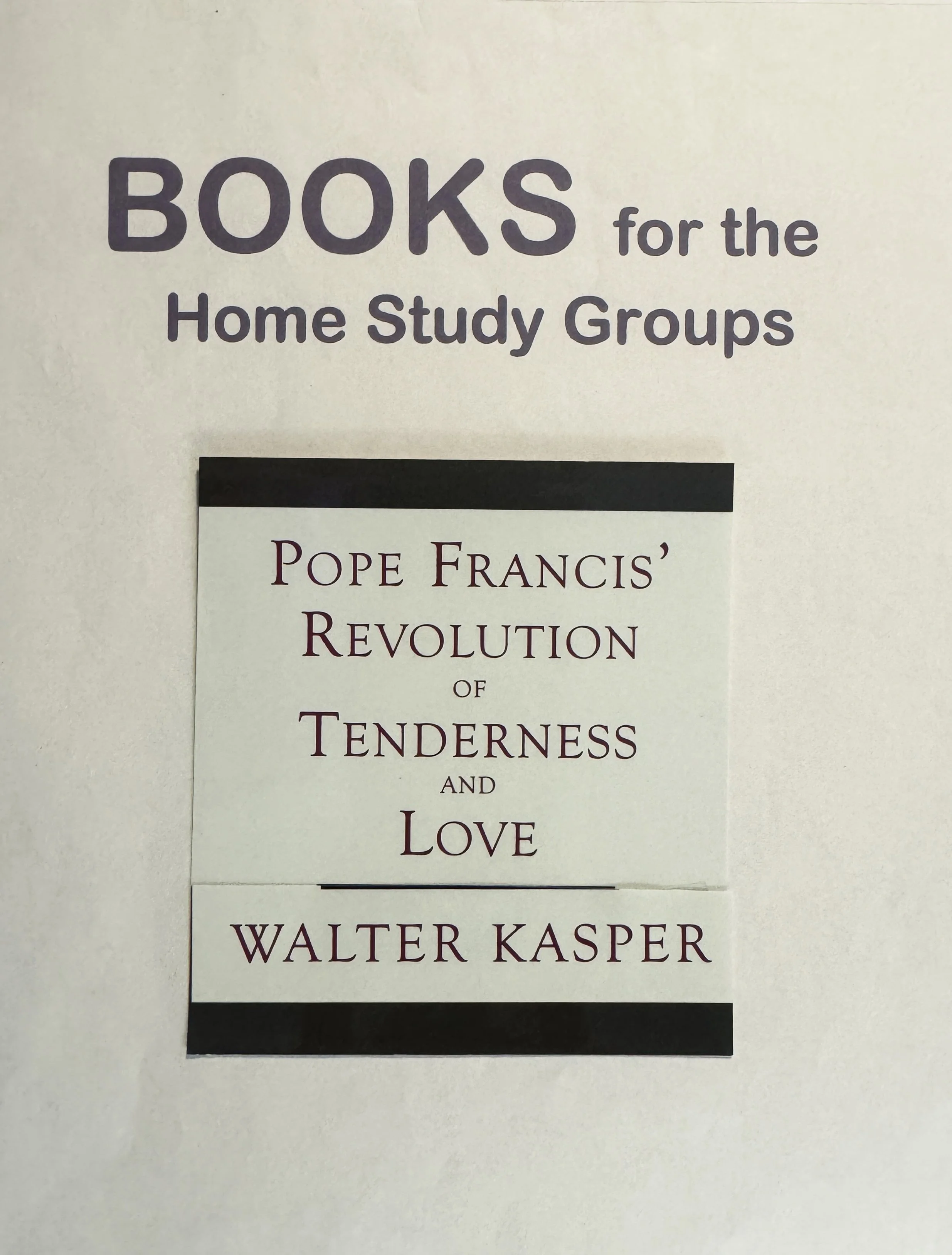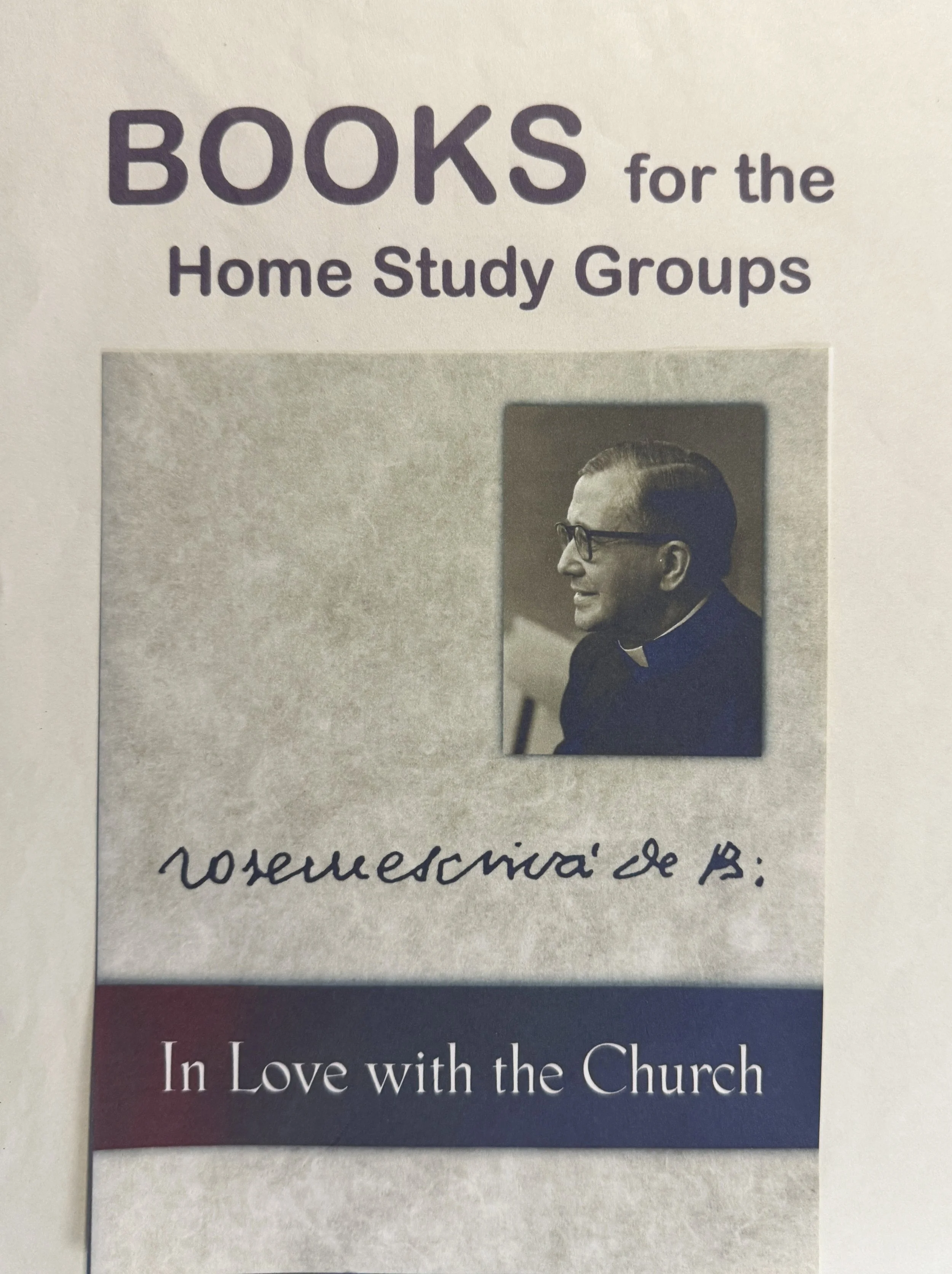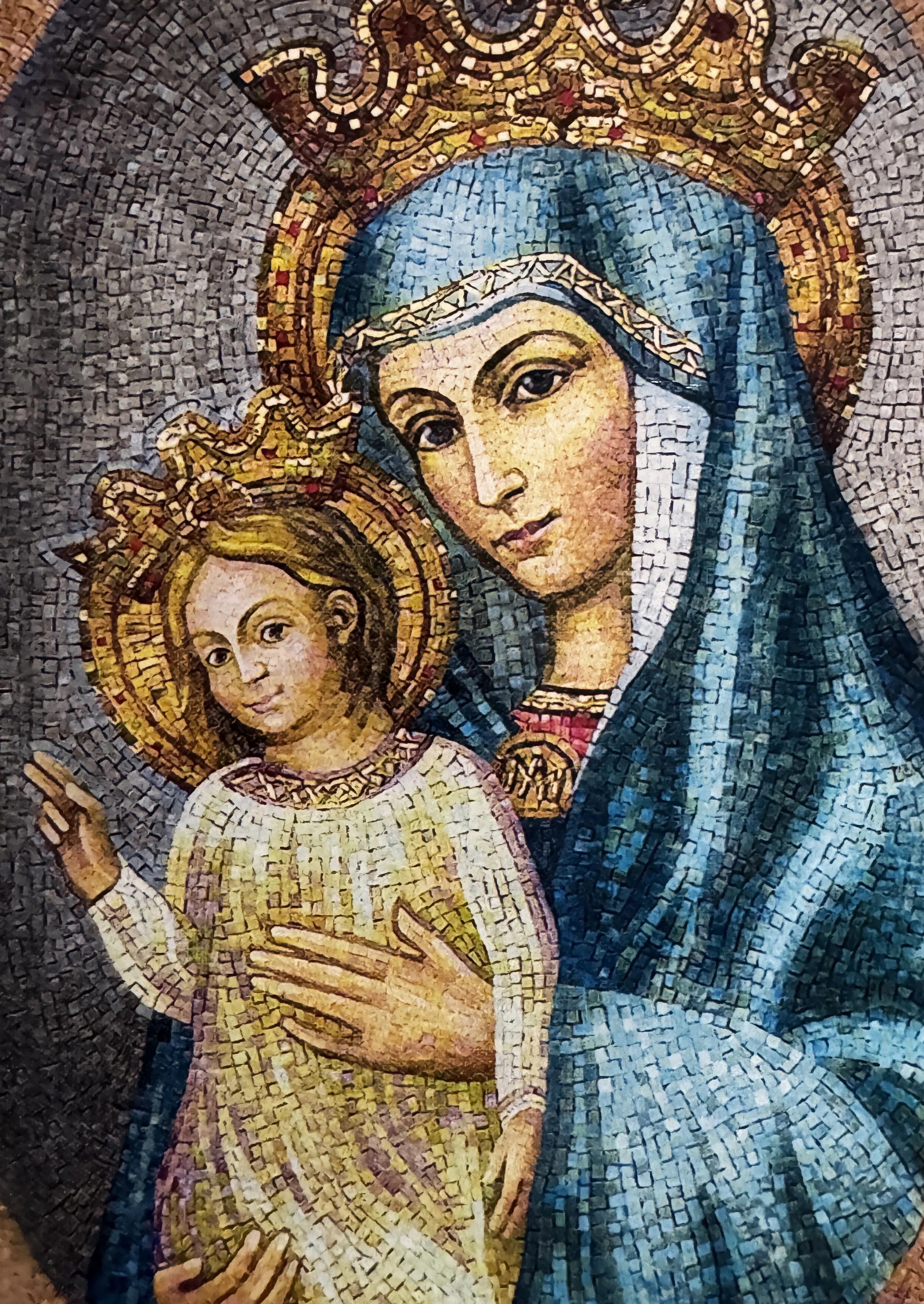Home Study Guide
Post-Synodal Apostolic Exhortation
Amoris Laetitia
Of the Holy Father
Francis
To Bishops, Priests and Deacons
Consecrated Persons
Christian Married Couples
And all the Lay Faithful
On Love in the Family
The Home, Our Project for the World
Building Marriages & Families in
The Joy of Family Love*
Home Study Groups for Women
*Amoris Laetitia, Pope Francis
Home Study Guide: Introduction
This guide is for personal Prayer and Study, or with a friend, or a large or small group. It is meant to develop topics presented in the Home Study Groups material.
Content and Sources
St Josemaria’s teachings which we can bring to the world.
The Prelate Javier Echeverria who requested ways to address the breakdown of Marriage, Family, and Home
Theme: Family Love: A Vocation and a Path to Holiness
Amoris Laetitia, The Joy of Love, On Love in the Family (Pope Francis)
Pope Francis’s short letter Missionary Sending of Families with guidelines which the Pope handed out to all in attendance at the World Meeting and also the Sunday Angelus in St. Peter’s Square
Canada’s Vicar Monsignor Fred Dolan who encourages watching Pope Francis’s surprise TED TALK on the topic Revolution of Tenderness, which received a standing ovation of 2,800 people.
From Pope Francis
There is so much work, therefore, for theology and for its mission today to incarnate the Word of God for the Church and for all mankind in the Third Millenium. Today more than ever we need a revolution of tenderness. This will save us. Let us entrust the advancement of our work to Our Lady, Mother of Tenderness. I ask you to pray and have other pray for me.
Theme for World Meeting of Families in Rome
June 26, 2022
“Family love: a vocation and a path to holiness”
On the fifth anniversary of he Apostolic Exhortation Amoris Laetitia and three years after the promulgation of Gaudete et Exsultate, the aim is to emphasize the family love as a vocation and a way to holiness, and to understand and share the profound and redeeming significance of family relationships in daily life. To this end, the Meeting proposes a reading of Amoris in the light of the call to holiness spoken of in Gaudete et Exsultate.
Conjugal and family love reveals the precious gift of a life together where communion is nourished and a culture of individualism, consumption and waste is averted: “The aesthetic experience of love is expressed in that ‘gaze’ which contemplates other persons as ends in themselves.” (AL 128), and at the same time recognizes and in other people their sacred family identity as a husband, wife, father, mother, son, daughter, grandfather or grandmother.
As marriage and family shape a concrete experience of love (tenderness as described by Pope Francis) they demonstrate the great significance of human relationships in which joys and struggles are shared in the unfolding of daily life as people are led towards an encounter with God. This journey, when lived with fidelity and perseverance, strengthens and expressed in conjugal and family relationships. In this sense, Christian family life is a vocation and a way to holiness, an expression of “the most sttractive face of the Church.” (GE 9)
Statement of the Vatican’s Dicastery for Promoting Integral Human Development
The next World Meeting of Families with the Holy Father has as its motto “Family love: a vocation and a path to holiness.” This motto reminds us very directly of Saint Josemaría’s preaching. The meeting will take place precisely on June 26, 2022. We especially entrust to Saint Joseph the fruit of this year dedicated to the family, asking the Holy Patriarch to grant us “the grace of graces: our conversion” (Francis, Apost. Letter Patris corde, final prayer); and also to help us be better withnesses to God’s love in our own environment, especially in the family.
Your Father blesses you with all his affection,
Rome, March 19, 2021
Words of Saint Josemaria, that “this is what the Church is: Christ present among us, God coming towards mankind in order to save us, calling us with his revelation, sanctifying us with his grace, sustaining us with his constant help in the great and small battles of our daily life.” (Christ is Passing By, no. 131). Given this identity with Christ with the Church, we can understand the well-known and forceful statement of Saint Cyprian: “No one can have God as their Father if they don’t have the Church as their Mother,” (On the Unity of the Catholic Church, 6).
The Church is Christ and so are the men and women incorporated into Christ by Baptism; and in this human element, along with so much holiness, many manifestations of human weakness are also present. But this weakness — our own and that of others — should not diminish the strength of our faith when professing “unam, sanctam, catholicam et apsolicam Ecclesiam.”
Our love for the Work is necessarily linked to our love for the Church. Our Father, with a Catholic, universal outlook, tells us: “My children, we cannot look only at the Work: we look first and always at the holy Church,” (Letter 14-IX-1951, no. 27).
Saint Augustine said that the “Church is the reconciled world,” (Sermon 96, no. 8). That is, it develops by reconciling the world with God. That is the great apostolic mission of everyone in the Church in a marvelous unity amid the diversity of so many institutions and initiatives.
Reconciling the world with God entails bringing peace to this world, so afflicted by divisions and wars, such as the current one between Ukraine and Russia, and the most recent on in the Holy Land.
Pope Francis & Monsignor Fernando Ocariz
Our Home in Heaven
Inspired by
Pope Benedict XVI, Cormac Burke, Pope Francis, St. Josemaría
The Vocation to Marriage
Cormac Burke
CHOSEN by GOD, HOLY and BELOVED (Col. 3:12)
Chosen by God to give witness to Christ and to bring all those who surround us the joy of knowing we are God’s children. CPB #30
To live out our vocation as beloved daughters and sons of Christ and become identified with Christ.
This vocation has two clear purposed: a call to faithful love and to fruitful love. CCC 2363
The first purpose is that spouses grow together in goodness, and in that openness to goodness which prepared them for HEAVEN. This means specifically that they are meant to grow in loving God (the first commandment) by means of growing in love for each other throughout their lifetime.
The second purpose is that they carry on God’s loving work of creation. In other words that as co-creators with God, they bring children into the world and rear them in the setting of family love, so as to prepare them for a life that can lead to HEAVEN.
Heaven
Pope Benedict XVI
In Christ ascended into heaven the human being has entered into intimacy with God in a new and unheard-of way.
Man henceforth finds room in God forever.
Heaven: this word heaven does not indicate a place above the stars but something far more bold and sublime. It indicated Christ himself, the divine Person that completely and forever takes on humanity, he in whom God and man are united forever. And we draw near to heaven, indeed, we enter into heaven to the extent that we draw near to Jesus and enter into communion with him.
Man’s being in God, this is Heaven.
Pope Benedict XVI
Died December 31, 2022, Feast of the Holy Family
His first Encyclical, God is Love
His last words, “Jesus, I love you”
His words on the family
The Family is the privileged setting where every person learns to give and receive love
A necessary good for peoples, an indispensable foundation for society
A great and lifelong treasure for couples
A unique good for children who are meant to be the fruit of the love, of the total and Generous self-giving of their parents
The family is also a school that enables men and women to grow to the full measure of their humanity
Omnes cum Petro ad Jesum per Mariam
Pope Saint John Paul II
Pope St. John Paul II (1920-2005) was born in Poland and was a vibrant, athletic, and intelligent child. His deeply religious father played an important role in his spiritual formation after his mother’s death when he was 8 years old. He studied literature, poetry, and theater before his studies were interrupted by the Nazi invasion of Poland in 1939. He answered the call to the priesthood, and after entering a clandestine seminary was ordained in 1945. He completed his doctoral studies in Rome and returned to Poland where he ministered in a special way to young people. He was ordained a bishop in 1958 and attended the Second Vatican Council in 1962. He is well known for his leadership in encouraging a spiritual and cultural resistance in the Communist occupation of Poland. He was elected Supreme Pontiff in 1978, the first non-Italian pope in over 450 years, and had the second-longest pontificate in history. He was a remarkable theologian and philosopher and a guardian of orthodoxy. During his time as Holy Father he gave a multitude of important contributions to the Church including his teaching on the Theology of the Body, his emphasis on the Universal Call to Holiness, and his strong devotion to the Virgin Mary. He is also known as the “Pope of the Family.” During his pontificate he beatified 1338 people and canonized 482 saints. He also visited 129 countries, making him one of the most well-traveled world leaders in history. He was canonized by Pope Francis in 2014. His feast day is October 22.
The Son of God became Man to Summon us to a Revolution of Tenderness
Evangelii Gaudium #88, Pope Francis
Monsignor Fernando Ocariz, Chicago, July 21, 2019
In his get-together with men last week the Prelate said, “All things are created for Christ, for Him, and in Him.” Therefore, we should center our entire life on Jesus. “Our prayer, our life, our spiritual life, our life of work, our family life, our apostolic life-everything should center on Jesus Christ,” he said. “Everything is for Him; the whole meaning of life, of creation, of history, is based on this truth.” The prelate said that this foundation on Christ “is where we draw the strength to be his co-operators, to have Him present in us, the identify with Him. All the apostolic work must focus on this. It is about brining others to Jesus Christ.”
Saint John Paul II, The Trinity’s Embrace, God’s Saving Plan, Vol. 6, pp. XIV, XV
History is the gradual unfolding of God’s saving plan which finds its key, center and purpose in Jesus Christ…Christ’s life is the “hour of Love” unfolded in the Father and the Holy Spirit…a great pilgrimage to the house of the Father [which] takes place in the heart of each person, then reaches to the whole of humanity.
Pope Benedict XVI, The Joy of Knowing Christ, Meditations on the Gospels
Chapter 22, A Revolutionary Love, Luke 6:27-38
This Sunday’s gospel contains some of the most typical and forceful words of Jesus’ preaching: “Love your enemies.” (Luke 6:27) It is taken from Luke’s gospel but is also found in Matthews (5:44), in the context of the programmatic discourse that opens with the famous “beatitudes.” Jesus delivered it in Galilee at the beginning of his public life: it is, as it were, a “manifesto” presented to all, in which he asks for his disciples’ adherence, proposing his model of life to them in radical terms.
But what do his words mean? Why does Jesus ask us to love precisely our enemies, that is, a love which exceeds human capacities?
Actually, Christ’s proposal is realistic because it takes into account that in the world there is too much violence, too much injustice, and therefore this situation cannot be overcome except by countering it with more love, with more goodness. This more comes from God: it is his mercy which was made flesh in Jesus and which alone can “tip the balance” of the world from evil to good, starting with that small and decisive “world” which is the human heart.
In responding to evil with good (see Romans 12:17-21) and thereby breaking the chain of injustice, one understands that for Christians nonviolence is not merely tactical behavior, but a person’s way of being, the attitude of one who is so convinced of God’s love and power that he is not afraid to tackle evil with the weapons of love and truth alone. Love of one’s enemies constitutes the nucleus of the “Christian revolution,” a revolution not based on strategies of economic, political, or media power; …a love that does not rely ultimately in human resources but is a gift from God, which is obtained by trusting solely and unreservedly in his merciful goodness. Here is the newness of the gospel which silently changes the world! Here is the heroism of the “lowly” who believe in God’s love and spread it, even at the cost of their lives.
Let us ask the Virgin Mary, docile disciple of the Redeemer who helps us to allow ourselves to be won over without reserve by that love, to learn to love as he loved us, to be merciful as our Father in heaven is merciful. (Luke 6:36)
Mother of Tenderness, 14th Century Russion Icon, Tretyakov Gallery, Moscow
Traditionally represents the reflection of the Virgin’s earthly life, and her constant love for the people, as well as Christ’s tenderness and holiness. The face of the Virgin Mary drowns in a soft caressing light, radiating love for Baby Christ whom she carefully holds in her arms to give to the salvation of people. Responding to the caress, the Child gently presses His cheek to His Mother. This icon is one of the important Russian icons depicting Theotakos.
Whenever we look to Mary, we come to believe once again in the revolutionary nature of love and tenderness.
—Pope Francis, Evangelii c Gaudium 288
“The Theology of Tenderness of Pope Francis”
“The Son of God, by becoming flesh, summoned us to the revolution of tenderness.”
Dear brothers and sisters,
I greet you cordially and thank Cardinal Bassettie for the kind words he has addressed to me in your name, and also for your works, in which he updated me on the work you do. You have reflected in recent days on the theology of tenderness, and I wish simply to say something to you, because when I saw that this was the title, I began to study. You have made me read this book to understand what the “thing” was. A good book, you know it, the one by Rocchetta. He is good…is it him?
I would like, simply, to propose three ideas.
The first concerns the expressions “theology of tenderness.” Theology and tenderness seem to be two distant words: the first seems to recall the academic context, the second interpersonal relations. In reality our faith links them inextricably. Theology, in fact, can not be abstract – if it were abstract, it would be ideology – as it arises from an existential knowledge, born from the encounter with the Word made flesh! Theology is then called to communicate the concreteness of God’s love. And tenderness is a “concrete existential” asset, to translate in our times the affect that the Lord nourishes for us.
Today, in fact, there is less focus on the concept or practice and more on “feeling” than in the past. We may like it or not, but it is a fact: we start from what we feel. Theology can certainly not be reduced to sentiment, but neither can it ignore that in many parts of the world the approach to vital issues no longer begins with the ultimate questions or social demands, but with what the person feels emotionally. Theology is called upon to accompany this existential quest, bringing the light that comes from the Word of God. And a good theology of tenderness can present divine charity in the sense. It is possible, because the love of God is not an abstract general principle, but personal and concrete, that the Holy Spirit communicates intimately. Indeed, he reaches and transforms the feelings and thoughts of man. What content could a theology of tenderness therefore have? Two seem important to me, and they are the other two ideas that I would like to offer you: the beauty of feeling that one is loved by God, and the beauty of feeling loved in the name of God.
Feeling we are loved. It is a message that has come to us more strongly in recent times: from the Sacred Heart, from Merciful Jesus, from mercy as an essential property of the Trinity and of Christian life. Today the liturgy reminds us of Jesus’ word: “Be merciful, just as your father is.” (Lk 6:36) Tenderness can indicate precisely our way of receiving divine mercy today. Tenderness reveals us, next to the paternal face, the maternal face of God, of a God Who loves son. (cf. Is 49:15) Whatever happens, whatever we do, we are certain that God is near, compassionate, ready to be moved for us. Tenderness is a beneficial word, it is the antidote to fear with regard to God, because “there is no fear in love,” (1 Jn 4:18) because trust overcomes fear. To feel loved, therefore, means learning to trust in God, to tell Him, as He wishes: “Jesus, I trust in you.”
These and other considerations can deepen research: to give the Church a “flavourful” theology; to help us live a conscious faith, burning with love and hope; to exhort us to kneel, touched and wounded by divine love. In this sense, tenderness refers to the Passion. The Cross is in fact the seal of divine tenderness, which is drawn from the wounds of the Lord. His visible wounds are the windows that open onto His invisible love. His Passion invites us to transform our heart of stone into a heart of flesh, to become passionate about God. And about man, for the love of God.
Here then is the last idea: feeling we are able to love. When man feels truly loved, he feels inclined to love. Besides, if God is infinite tenderness, then man too, created in His image, is capable of tenderness. Tenderness, then, far from being reduced to sentimentalism, is the first step to overcome the withdrawal into oneself, to leave behind the self-centeredness that disfigures human freedom. God’s tenderness leads us to understand that love is the meaning of life. Thus we understand that the root of our freedom is never self-referential. And we feel called to pour into the world the love received from the Lord, to channel it into the Church, in the family, in society, to interpret it in serving and giving ourselves. All this not out of duty, but out of love, out of love for Him, by whom we are tenderly loved.
These brief ideas point towards a theology on the move: a theology that emerges from the narrow alleys to which it is sometimes confined, and that with dynamism turns to God, taking man by the hand; a non-narcissistic theology, but aimed at the service of the community; a theology that is not content to repeat the paradigms of the past, but that is the Word incarnate. Certainly the Word of God does not change (cf. Heb 1:1-2,13,8), but the flesh that it is called to assume, this yes, it changes in every age. There is so much work, therefore, for theology and for its mission today: to incarnate the Word of God for the Church and for mankind in the third millennium. Today more than ever we need a revolution of tenderness. This will save us.
Let us entrust the advancement of your work to Our Lady, Mother of tenderness. I bless you and, together with you, I bless the communities you come from; and I ask you to pray and have others pray for me. Thank you.
Angelus, February 28, 2007
St. Joseph, A Worker with a Father’s Heart
“How much fathers could learn from the example of Joseph, a righteous man, who dedicated his life to supporting and protecting the child and his wife, his family, in difficult time.” —Pope Francis
Work, beginning with that in the home, is also concerned with the common good.
Where does one learn this hard-working lifestyle?
First of all, one learns it in the family.
A family requires the involvement of all its members, in the image of the home in Nazareth.
Each family can, as Mary and Joseph did, welcome Jesus: listen to him, speak with him, grow with him and in this way improve the world. The mystery of Jesus who comes to save us…He comes to save the world.
And this is the great mission of the family: to make room for Jesus, to welcome Jesus in each member: children, husband, wife, grandparents…
Jesus is here in order that he may grow spiritually in the Family.
Pope Francis’ message to families at the World Meeting of Families 2022
Dear families,
I invite you to continue your journey by listening to the Father who calls you: become missionaries in the ways of the world! Do not walk alone! You, young families, be guided by those who know the way, you who are further along, be companions on the journey for others. You who are lost because of difficulties, do not be overcome by sadness, trust the Love God has place in you, plead daily with the Spirit to revive it.
Announce with joy the beauty of being family! Announce to children and young people the grace of Christian marriage. Give hope to those who have none. Act as if everything depends on you, knowing that everything must be entrusted to God. Be you who “sew” the fabric of society and of a synodal Church, creating relationships, multiplying love and life. Be a sign of the living Christ, do not be afraid of what the Lord asks of you, be generous with Him. Open yourselves to Christ, listen to Him in the silence of prayer. Accompany those who are most fragile, take charge of those who are alone, refugees, abandoned.
Be the seed of a more fraternal world! Be families with big hearts! Be the welcoming face of the Church! And please pray, always pray!
May Mary, our Mother, come to your aid when there is no more wine, be a companion in the time of silence and trial, help you to walk together with her Risen Son.
My dear children: may Jesus watch over my daughters and sons for me!
Today we begin the year convoked by Pope Francis to highlight family love, by fostering new ways to accompany families on their path to holiness. This initiative will coincide, for a number of months, with the Year of Saint Joseph, which began last December. This overlap gives us an opportunity to turn especially to the intercession of the Holy Patriarch, so that he will look after our families and those of the whole world, and also so that many young people may discover the beauty of undertaking the path of married life, while being aware of the Christian family’s evangelizing mission.
During the past months, due to measures adopted in various countries for the pandemic, many of our days may have been spent at home, with the rhythms and tasks of domestic life. The effort to live in union with our Lord has probably helped us to face painful situations with faith and hope: our own suffering and that of many family members, the deaths of loved ones, situations of loneliness, illness of stress. Hopefully we have tried to help alleviate this pain with our prayer, closeness and affection.
These circumstances have also been an opportunity to take better care of each individual — especially the young and the elderly — and to serve others in the various tasks at home. A Christian family, in the image of the home at Nazareth, requires the involvement of all its members in meeting the needs of education, care, rest, and so on. Each person provides a necessary and irreplaceable value, although the specific distribution of tasks can take various forms. Here it can help us to imagine the harmony between Joseph and Mary, assisted also by Jesus as he grew up and was able to help out at home.
This year can also provide the possibility to foster in a special way the awareness and atmosphere of a family in the centers of the Work and in all my sons’ and daughters’ homes. Also I encourage you to find ways to show concern for other families, as well as for people in need and the poor. I am sure that, with initiative, each family will find creative ways to be, as Saint Josemaría wanted, “sowers of peace and joy” (Christ Is Passing By, no. 30).
For those families who have not been able to have children there also opens up a wide panorama of family apostolate. You are called, with your mutual love, to provide the example of a bright home for those around you and also to share this home with your friends, relatives and acquaintances, and so help to transform our world into a better home.
The World Meeting of Families with the Holy Father has as its motto “Family love": a vocation and a path to holiness.” This motto reminds us very directly of Saint Josemaría’s preaching. The meeting will take place precisely on June 26, 2022. We especially entrust to Saint Joseph the fruit of this year dedicated to the family, asking the Holy Patriarch to grant us “the grace of graces: our conversion” (Francis, Apost. Letter Patris corde, final prayer); and also to help us be better witnesses to God’s love in our own environment, especially in the family.
Your Father blesses you with all his affection,
Rome, March 19, 2021
Books
Christ is Passing By, St. Josemaría
The reference book for developing topics presented
Or for spiritual reading
To live and teach about living a life of Faith, Hope and Love
Coming to know the heart of God
And helping others do the same
To become holy in the middle of the world
Revolution of Love, the 21st Century Home
Reflections from Pope Francis, St. Josemaría, Cormac Burke
A guide and a Handbook to living home life
To encourage readers with images of love in the Family (Amoris Latitia)
To offer material for discussion
The sacraments and prayer are naturally woven throughout ordinary family life in this book
Pope Francis’ Revolution of Tenderness and Love: Theological and Pastoral Perspectives
by Cardinal Walter Kasper
Description of the book from the cover (inside flap):
Cardinal Kasper shows how Pope Francis’ central ministry of renewal is one with a deeply considered design, a plan, and a goal. It is a ministry rooted in the theological and pastoral experience of Jorge Mario Bergoglio. As pope, his words and actions shed light on the simple as well as the big questions of life today, but the challenge of this pontificate is far more radical than most suspect. As Kasper writes, “It is a revolution in the original sense of the word, the return to the wellspring of the gospel as the way into the future.”
The Son of God, by becoming flesh, summoned us to the revolution of tenderness.
Pope Francis, Evangelii Gaudium, 88
Excerpt, “the radical newness introduced by revelation”
St. John Paul II, Fides et Ratio
The Beatitudes: where “Jesus asks his disciples adherence, proposing his model of life to them in radical terms. Love of one’s enemies constitutes the nucleus of a Christian revolution. Here is the newness of the Gospel which silently changes the world.”
Pope Benedict XVI, The Joy of Knowing Christ, Meditations on the Gospel, excerpt from Chapter 22, A Revolutionary Love
Also see the article from the Holy See Press in the file titled “Pope Francis TED Talk” with Pope Francis’ Sept. 2018 address to participants at the Conference on The Theology of Tenderness in Pope Francis.
Bishop Andrew Cozzens’ statement re: Fiducia Supplicans
December 18, 2023 – Today the Vatican issued a statement, signed by the Holy Father, that spoke about offering blessings to people who currently live outside of the way of life commanded by Jesus. The document especially addresses the question of blessing “same-sex couples.” The document from the Vatican, Fiducia Supplicans (FS), is clear that this is not in any way a change in the Church’s teaching about marriage. The Church’s teaching about marriage, since it is rooted in the Gospel we have received from Jesus Christ, is unchangeable. The Vatican document itself states that marriage is an “exclusive, stable, and indissoluble union between a man and a woman, naturally open to the generation of children” and the document also states that “this conviction is grounded in the perennial Catholic doctrine of marriage; it is only in this context that sexual relations find their natural, proper, and fully human meaning. The Church’s doctrine on this point remains firm” (FS, 4).
What is the Vatican saying then? We know that Jesus Christ came to call all peoples to repentance and conversion because he desires that we would share with him the fullness of divine life in his kingdom. All of us are sinners and all of us are at different stages in this path of conversion. We see in the Gospels that whenever anyone comes to Jesus with a heart open to him, a heart seeking his mercy, Jesus always responds with mercy and inviting them to deeper repentance and discipleship. There are many examples of this in the Gospels, for example, the woman caught in adultery. Jesus receives her with mercy, saves her from the penalty of death, yet without condoning her sinful activity. He shows her love and mercy and calls her to a new life when he says, “Neither do I condemn you. Go, [and] from now on do not sin any more” (John 8:11). Jesus does this for all of us.
Today’s document emphasizes that people who come to the Church for a blessing, “acknowledge that the life of the Church springs from the womb of God’s mercy and helps us to move forward, to live better, and to respond to the Lord’s will” (FS, 20). Although it is impossible for us to bless a same-sex union, since any sexual-union outside of the marriage of one man and one woman is contrary to the Gospel, we may bless individuals who are not yet living in full accord with the Gospel, even those in a same-sex union. This is not a marriage blessing and should never be done in a liturgical or ceremonial way which would give the false idea of blessing a union contrary to the Gospel. It is not legitimate to use the Book of Blessings or any official ritual for blessing a union contrary to God’s law. This is a blessing for persons who “recognizing themselves to be destitute and in need of his help—do not claim a legitimation of their own status, but who beg that all that is true, good, and humanly valid in their lives and their relationships be enriched, healed, and elevated by the presence of the Holy Spirit” (FS, 31).
This blessing is not for people seeking a legitimation of same sex union but for those seeking to live better: “there is no intention to legitimize anything, but rather to open one’s life to God, to ask for his help to live better, and also to invoke the Holy Spirit so that the values of the Gospel may be lived with greater faithfulness” (FS 40).
The truth is we are all sinners and all of us need God’s blessing to come to repentance and conversion. Often at Holy Mass we tell people who are not able to receive Holy Communion because they are living in a situation that is objectively outside of Jesus’ commandments that they should come for a blessing. This reception of the blessing expresses a humble desire to grow in conversion, to seek his help to overcome sin, to seek holiness which is the goal of every Christian life.
Let us pray that many people, like the Woman at the well, Zacchaeus the tax collector, the Woman caught in adultery, or Saint Peter himself who was a grave sinner, may “feel that they are still blessed, notwithstanding their serious mistakes, that their heavenly Father continues to will their good and to hope that they will ultimately open themselves to the good” (FS, 27).
And of course, as the Vatican made clear, “Any blessing will be an opportunity for a renewed proclamation of the kerygma, an invitation to draw ever closer to the love of Christ” (FS, 44). Thus, when people come to the Church seeking her blessing let us also proclaim to them the saving love of Jesus found through repentance for all of us who are sinners.
Canticle of Zechariah
In the tender compassion of our God
The dawn from on high will break upon
us, to shine on those who dwell in
darkness and the shadow of death, and
To guide our feet into the way of peace.
Restoring the Culture to God’s Loving Plan for the World
Pope Benedict XVl
It is not the big ideas that save the world, but the courage to tackle what is at hand, the humility that follows the voice of the heart that is the voice of God… patiently and humbly walking with Jesus step by step, joining him in loving.
People do not want from the Church what is its job to impart, the grace of being a child of God.
The transforming of evil through the power of love … Jesus bursts our NO open by means of a stronger and greater YES. In the cross of Christ and only there this saying opens up and becomes revelation. In fellowship with him, however, it becomes a possibility for our life, too.
Only the courage to rediscover and accept the divine vocation of our being can give our souls and our society a new inner stability once again.
The Yes of Jesus Christ
Pope Benedict XVI
The Crossroad Publishing Company




